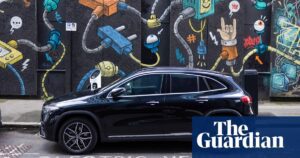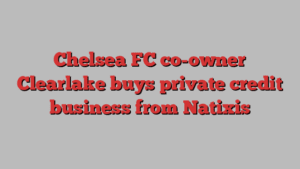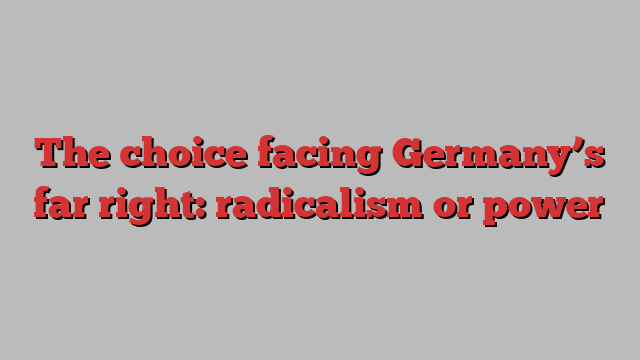
The far-right Alternative for Germany’s victory in a regional election places the party on the horns of a dilemma: does it actually want to govern? Or is it content to remain the arch troublemaker of German politics, forever raging from the sidelines at the Berlin machine?
The AfD’s success in Thuringia, where it became the first hard-right party in Germany’s postwar history to win a state election, was a personal triumph for its leader in the region, Björn Höcke, a man at the radical end of a party that for years has been moving ever further to the right. Even some colleagues once tried to expel him as a dangerous hardliner.
“Höcke is the most successful campaigner the AfD ever had and at the same time he’s the most polarising figure, the one who publicly presents the most radical positions,” said Wolfgang Schroeder, a political scientist at Kassel University. “He basically wants a cultural revolution.”
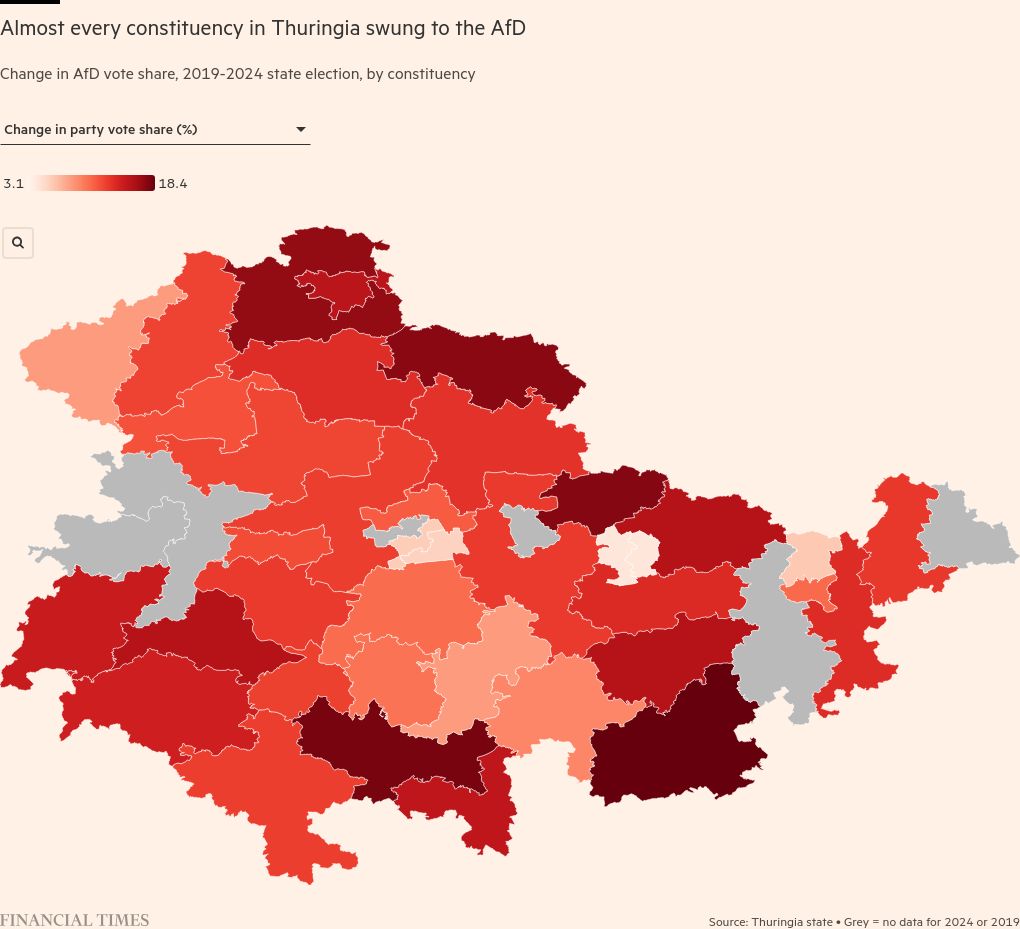
Despite its successes on Sunday — it also came second in Saxony, just behind the centre-right Christian Democratic Union (CDU) — the AfD still has no viable path to government. No other party will even consider co-operating with it.
Some in the AfD would be happy for it to remain in semi-permanent opposition, isolated but proud. But others feel its growing success with voters means it is edging closer to the prospect of one day wielding real power.
That was the message presented on Monday by Alice Weidel, the party’s co-leader. Voters in Thuringia and Saxony had, she said, given the AfD a clear mandate to govern.
“And I would urgently advise against ignoring this mandate,” she added. “Cordons sanitaires [against the AfD] are undemocratic.”
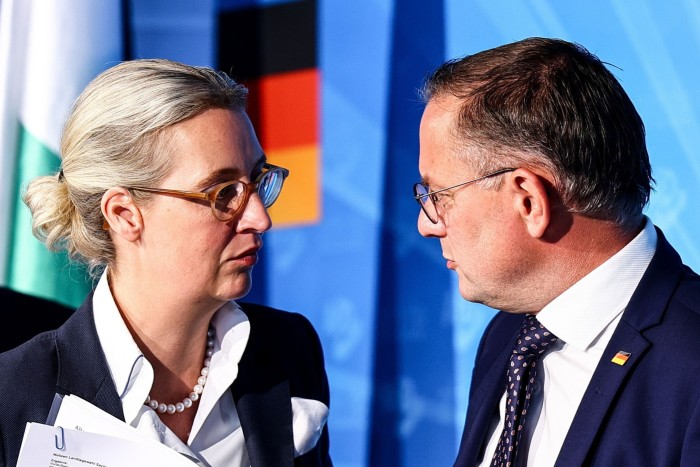
To govern, though, the AfD must portray itself as a potential partner for established conservative parties that currently refuse to work with it. That will be hard if it ends up becoming a full-blown Höcke party.
“Sunday’s result is tough for the AfD because it now has to decide if it wants to rule,” said Thorsten Faas, professor of political sociology at Berlin’s Free University. “And that’s not going to work with the Höcke model.”
Höcke is one of Germany’s most notorious far-right politicians. He has been fined a total of €30,000 this year by two different courts for using banned Nazi slogans.
In an infamous speech in 2017 he described the Holocaust memorial in Berlin as a “monument of shame” and demanded a “180 degree turnaround” in Germany’s apologetic attitude to its Nazi past.
A former history teacher, Höcke was instrumental in steering the AfD away from its roots as a Eurosceptic outfit opposed to Greece’s bailout to a raucously anti-immigrant movement that many in the German security establishment see as a threat to democracy.
But he remained controversial, even within his own party. The AfD leadership tried to expel him in 2017. They failed, and from then on his influence on the nationalist right only grew.
A move by German domestic intelligence to declare his Thuringian branch of the AfD “rightwing extremist” has had little to no effect on his standing with supporters.
Their devotion to him was on full display in the Thuringia election campaign, where he was greeted at every hustings by jubilant crowds chanting his name and roaring approval at each one of his jibes against Green climate policies, “woke” culture and “gender-gaga”.
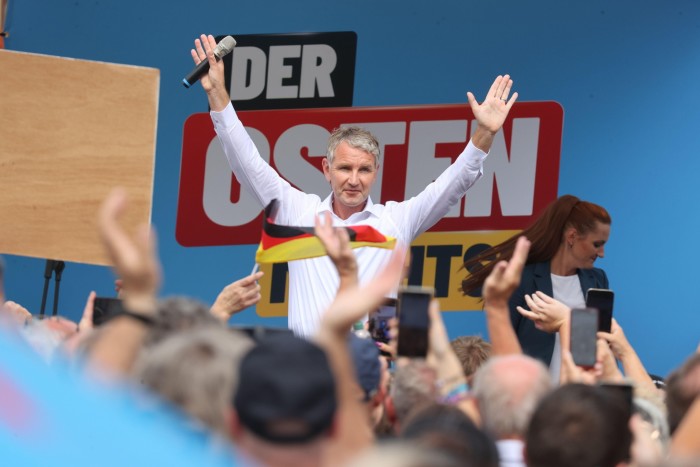
The AfD’s stunning result in Thuringia, where it won 32.8 per cent of the vote, more than nine points ahead of the CDU, will silence many of Höcke’s critics in the party and cement his position as its éminence grise.
“Yes Höcke is stronger now — he is an election winner, he’s shown what you can achieve through successful political work and addressing people’s everyday concerns and needs,” said Alexander Sell, an AfD MEP.
Yet Höcke’s enhanced standing could prove problematic for the few remaining pragmatists in the party who still dream of a future coalition with the CDU — an option that is out of the question as long as Höcke remains so influential.
“The AfD is completely divided between the social-patriotic wing in eastern Germany and the economically liberal arm in West Germany and Berlin,” said Matthias Quent, a researcher into rightwing parties at the Institute for Democracy and Civil Society in the eastern city of Jena.
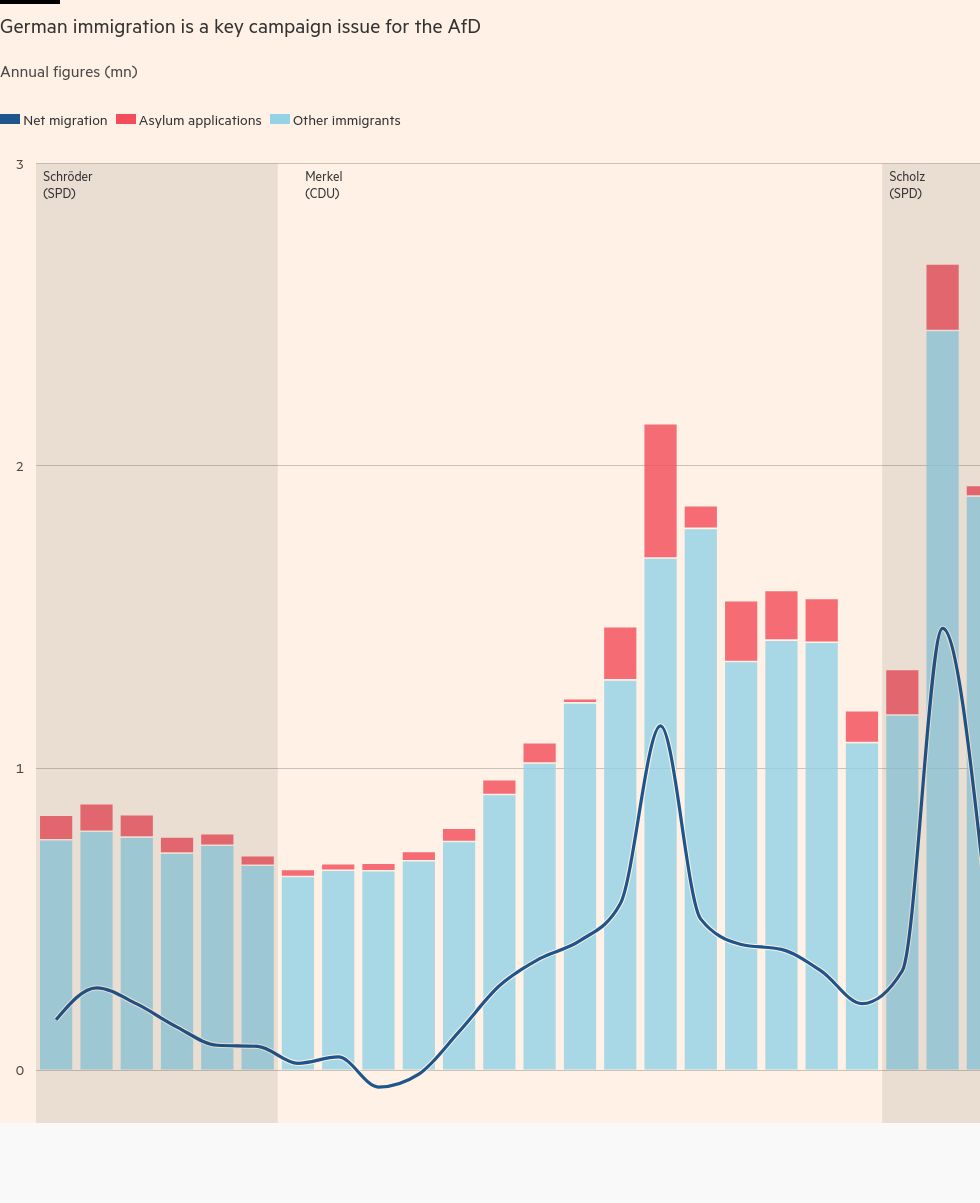
It is also clear who has the upper hand.
Other far-right European parties such as Giorgia Meloni’s Brothers of Italy (FdI), or Marine Le Pen’s Rassemblement National (RN), have sought to “detoxify” their brand, shedding their more radical positions to make themselves more palatable to middle-of-the-road voters.
The AfD, by contrast, has gone in the other direction, gradually shifting to the rabble-rousing right. AfD co-leader Tino Chrupalla said in May that his party would never go down the path of FdI, supporting the arming of Ukraine in its fight against Russia, for example.
“With us you’re not going to see this kind of Melonification,” he said. Such remarks were typical of a party that has isolated itself from Europe’s far-right mainstream.
The FdI and RN had “normalised and moderated, at least in the way they communicate with voters, and that’s not going to happen with someone like Höcke,” said Faas. “That’s the internal ideological struggle the AfD faces.”
Schroeder said the party had two options: it could orient itself towards Höcke, taking the view that “this form of radicalisation is a recipe for success”.
“Or something else could happen,” he added. “The resistance to Höcke within the party could grow, because his strategy of polarisation [means] the AfD will basically never come to power.”
Data visualisation by Clara Murray
